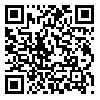

BibTeX | RIS | EndNote | Medlars | ProCite | Reference Manager | RefWorks
Send citation to:
URL: http://imtj.gmu.ac.ir/article-1-2666-en.html
2- Psychology & Counseling Department, Psychology & Educational Sciences Faculty, Yazd University, Yazd, Iran
3- Psychology Branch, Education & Psychology Faculty, Peyam-e-Noor University, Tehran, Iran
Aims: Many psychological factors have an impact on diabetes, one of the most important of which is the self-efficacy of diabetic patients. Mindfulness and emotional self-regulation are two components that affect on self-efficacy. The aim of the study was to investigate the mediator role of emotional self-regulation in the relationship between mindfulness and self-efficacy in the patients with type 2 diabetes who referred to the diabetes center of Yazd City, Iran.
Materials & Methods: In the descriptive-correlational study in 2016, 243 patients with type 2 diabetes from diabetes center of Yazd were selected as available. The data collection tool was a diabetic self-efficacy questionnaire, mindfulness and emotional self-regulation.Diabetic self-efficacy questionnaire, Freiburg’s mindfulness questionnaire, and Hoffman and Kashdan emotional self-regulation have been used for the purpose of data collection. Data was analyzed by SPSS software using Pearson correlation coefficient, regression analysis and multiple regression analysis.
Findings: There was a direct correlation between mindfulness and self-efficacy (r=0.428), mindfulness and emotional self-regulation (r=0.231) and self-efficacy and emotional self-regulation (r=0.241) in the diabetic patients. Also, variables of emotional self-regulation and mindfulness had the power of predicting self-efficacy, because of emotional self-regulation had a mediator role between self-efficacy and mindfulness (p<0.01).
Conclusion: Mindfulness and emotional self-regulation are related to the self-efficacy of diabetic patients, which is a mediator role in the relationship between emotional self-regulation and self-control.
Received: 2017/01/1 | Accepted: 2017/07/15 | Published: 2017/07/15
| Rights and permissions | |
 |
This work is licensed under a Creative Commons Attribution-NonCommercial 4.0 International License. |


